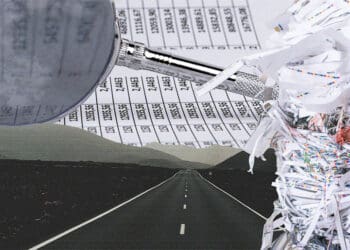Does that older (or younger) colleague on your team know something you don’t? Maybe it’s past time to set aside generational stereotypes and take advantage of the expertise or wisdom they can share. This article discusses how each generation in the workplace can learn from the others — if they are willing.
It wasn’t that long ago that the Silent Generation and Baby Boomers lamented how different Millennials were and expressed concerns about their ability to navigate the workplace. Disparaging remarks regarding the older generations’ perception of entitlement as a Millennial mindset were seen in headlines and analyzed extensively to see where the blame lay for this characteristic. “Okay, Boomer” was a reflexive call to action by the Millennial generation, who felt they had inherited a mess but lacked a voice.
Since 2016, the Millennial generation, the oldest of whom turned 40 in 2021, has made up the largest percentage of the workforce, and they are emerging as the leaders of today. Just as they shook up their elders with their entry into the workforce, as noted in a recent New York Times article, those same Millennials who disturbed their elders are worried about the challenges from Generation Z.
So, here is my advice. It’s time to stop worrying about change the next generation is going to bring and instead explore the value each has to offer. Change is going to happen. That is a given. New generations will redefine our workplace, adapt more easily to new technology. No doubt, they will disrupt the status quo. That is the norm. The new generations will see older generations as less agile, and it will take time for them to see, understand and appreciate the perspective that comes with age — that concept called “wisdom.”
The More Things Change, the More They Stay the Same
I admit to having come to this understanding slowly. I began my career as an engineer at a relatively small 100-person firm, where I compensated for my lack of experience with a strong work ethic and no-quitting mindset. That got me far as I progressively worked my way up to much larger firms, eventually transitioning into working as an engineering consultant. There was little I couldn’t figure out on my own, and I became a go-to person for my clients when they had a new requirement levied on them that they couldn’t figure out, because they had confidence that I could.
I was well into my career when a situation occurred that required cross-generational thinking.
I was working with engineers who built, launched and validated weather satellite sensors and their data on a joint project with NASA and NOAA when one of the deployed sensors developed an anomaly.
Now, the space environment is harsh and you can’t just go up there to look at things and see what the problem is. You have debug problems on the ground, relying on a second set of hardware, data, and experience.
After the current team tried unsuccessfully to fix the anomaly using a series of maneuvers designed to solve the problem, the sensor was shut down and the “graybeards” were brought in.
I had not heard the term graybeard used before in the context of engineering. But what I saw for the next two weeks changed my attitude about the older generations. These individuals were recalled from other jobs or from retirement. They were mostly gray if they did have hair and mostly male — hence the name “graybeard.” For two weeks, these engineers sat around a table speculating on what could have caused the problem and the likely way it could be fixed. They investigated their old notebooks and pored over the data from the sensor. Since there is no opportunity to fly up to see what the problem is, they held and turned and operated the duplicate set of components that are created when a satellite sensor is built.
Different Generations – Different But Complementary Skill Sets
Day after day, possible causes were explored and discarded based on experience and insight. Toward the end of the second week, the group had what they felt was the cause of the problem and the way to address it. And in the weeks that followed, their insights were borne out. Their suggestion restored the sensor to a nominal condition.
Turns out, the sensor had degraded due to space dust collecting in the lubrication oil of the operating side. Most sensors have an “A” side and a “B” side, redundant hardware to combat the harsh space conditions. When the young team had tried to switch from the A to the B side, the B side would not come up, and then they could not get the A side to operate again. The graybeards had decided that the B side had failed because the lubrication oil was too cold to act as a lubricant and allow the sensor to spin. By the time the A side was tried again, its lubrication oil had also gotten too cold to allow the sensor to spin.
The cause was determined through discussion — not from data. There was no data on the viscosity or temperature of the lubrication oil. The suggestion by the graybeards was to power up everything on the sensor, leave it for a period of time so the oil could be warmed up, and then try to start the backup side. And it worked. This solution might seem obvious in hindsight, but it was anything but when the discussions began. It took the collective effort of centuries of experience to resolve the problem. It took perspective. It took wisdom.
As technology continues to drive differences in our generations, we are going to see 360 mentoring become the norm. Aging generations will need to become comfortable with reaching back for help, whether it’s the current older generations who sought assistance from their younger counterparts in learning how to connect their cable and use their smartphones, or future older generations, who will face an ever-steepening learning curve to keep up with technology.
Meanwhile, as they mature, those in younger generations will come to appreciate the insight and perspective their older colleagues bring, such as being able to read people and understand their motivations, having patience to work through problems and understanding the bigger picture.
Every generation can learn from the others — and be better for it.



 Carrie Root, author of “The Other Soft Skill: How to Solve Workplace Challenges with Generational Intelligence,” is the founder and CEO of
Carrie Root, author of “The Other Soft Skill: How to Solve Workplace Challenges with Generational Intelligence,” is the founder and CEO of 










